Film Booking Offices of America

If you like this company, let us know!
Film Booking Offices of America (FBO) (also known as FBO Pictures Corporation) was an American film studio of the silent era, a producer and distributor of mostly low-budget films that were sometimes well-made. The business began in 1918 as Robertson-Cole (U.S.), the American division of a British import–export company and Robertson-Cole was formed by the English-born Harry F. Robertson and the American Rufus Sidman Cole. Robertson-Cole bought the Hallmark Exchanges (formerly the Mutual Exchanges that became known as Exhibitors-Mutual Exchanges) from Frank J. Hall in 1920. Exhibitors-Mutual/Hallmark had distributed Robertson-Cole product, and acquiring the exchanges gave them the right to distribute their own films plus Hall's product, with the exception of Charlie Chaplin reissues he had the rights to.
Robertson-Cole initiated movie production in the United States in 1920. That year, it incorporated Robertson-Cole Studios, Inc. and bought 460 acres in Santa Monica, California to establish a studio. The property, which became known as the "R.C. Ranch", enabled Robertson-Cole to centralize movie production, which previously had been scattered. The movie company had relied on equipment rentals to produce motion pictures. Two years later, a corporate reorganization led to the company's new name, with FBO becoming the official name of the distributing operation and Robertson-Cole Pictures Corp. the name of the production operation. In 1923, the studio contracted with Western actor Fred Thomson, who would soon emerge as one of Hollywood's most popular stars. Thomson was just one of numerous screen cowboys with whom FBO became identified.
The studio, whose core market was America's small towns, also put out many romantic melodramas, non-Western action pictures, and comedic shorts. In 1926, financier Joseph P. Kennedy led a group that acquired the company. In June 1928, using RCA Photophone technology, FBO became only the second Hollywood studio to release a feature-length "talkie." A few months later, Kennedy and RCA chief David Sarnoff arranged the merger that created RKO, one of the major studios of Hollywood's Golden Age.
Best films
Filmography of Film Booking Offices of America (125 films)
Production

Five Days to Live (1921)
, 1hDirected by Norman Dawn
Actors Sessue Hayakawa, Tsuru Aoki (青木 鶴子), George Kuwa

A Slave of Vanity (1920)
, 1hDirected by Henry Otto
Origin USA
Genres Drama
Themes Théâtre, Films based on plays
Actors Pauline Frederick, Arthur Hoyt, Willard Louis, Nigel Barrie, Ruth Handforth
Iris (Frederick), a British aristocrat, must choose between the poor Laurence (Barrie) and the rich Frederick (Louis). She decides to marry the wealthier Frederick, but at the last minute she changes her mind and runs off to Italy with Laurence. However, things don't work out quite the way she planned.
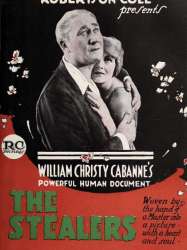
The Stealers (1920)
Directed by Christy Cabanne
Origin USA
Genres Drama
Actors Norma Shearer, John B. O'Brien, Walter Miller, Ruth Dwyer, Eugene Borden, Matthew Betz
Le Révérend Martin est devenu le chef d'une bande de pickpockets en prenant comme excuse l'infidélité de sa femme. Des années plus tard, lorsque sa fille est menacée par un incendie, il prie pour qu'elle soit sauvée et retrouve la foi quand elle est sauvée.

The Little 'Fraid Lady (1920)
Directed by John G. Adolfi
Origin USA
Genres Drama
Actors Mae Marsh, Tully Marshall, Kathleen Kirkham, Charles Meredith, Herbert Prior
Cecelia Carne, surnommée la petite lady effrayée (the little 'fraid lady) car elle évite la société, cherche la solitude dans la forêt pour parfaire son talent de peintre. Un jour par hasard elle entre dans la propriété du Juge Peter Carteret, où elle rencontre Saxton Graves, qui est en train de décorer la maison du juge. Considérant son talent, Saxton engage Cecelia et tombe vite amoureux d'elle. Alors qu'elle travaille chez le juge, Cecelia apprend qu'il est sur le point de juger une affaire dans laquelle Giron, un bootlegger, est impliqué. Or Giron est son père. Cela se complique quand Giron tente de faire chanter Carteret, mais Cecelia témoigne contre son père. Giron, réalisant qu'il est sur le point d'être emprisonné, se tue, libérant ainsi sa fille pour vitre heureuse avec Saxton.
Distribution
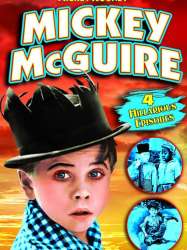
Mickey's Northwest Mounted (1929)
, 20minutesDirected by Albert Herman
Origin USA
Genres Comedy
Actors Mickey Rooney, Jimmy Robinson, Kendall McComas, Marvin Stephens
Stinkie Davis invites Mickey and the Scorpions to his rodeo. His invitation is actually a ploy to prank McGuire and his pals. However, things don't exactly go as planned for Stinkie. The kids partake in various picnic games, and Hambone gets into a headbutting contest with a goat.

The Air Legion (1929)
, 1h10Directed by Bert Glennon
Origin USA
Themes Transport films, Aviation films
Actors Ben Lyon, Antonio Moreno, Martha Sleeper
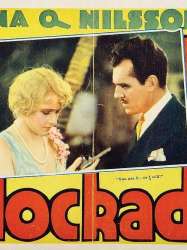
Blockade (1928)
, 1hDirected by George B. Seitz
Origin USA
Genres Drama, Adventure
Actors Anna Q. Nilsson, Wallace MacDonald, Walter McGrail

The Circus Kid (1928)
, 1h8Directed by George B. Seitz
Origin USA
Genres Drama
Actors Frankie Darro, Joe E. Brown, Helene Costello, Lionel Belmore, Charles Miller, Syd Crossley
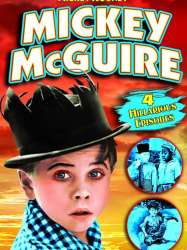
Mickey in School (1928)
, 20minutesDirected by Albert Herman
Origin USA
Genres Comedy
Actors Mickey Rooney, Billy Barty, Jimmy Robinson, Kendall McComas
It's time for Mickey and the kids to go back to school. During a game of tug-of-war against Stinkie Davis and his pals, the kids accidentally start a fire in the school.
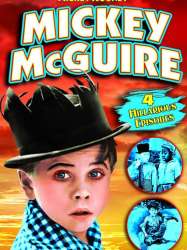
Mickey the Detective (1928)
, 20minutesDirected by Albert Herman
Origin USA
Actors Mickey Rooney, Billy Barty, Kendall McComas, Jimmy Robinson, Marvin Stephens
Mickey and the Scorpions starts his own detective agency. Stinkie Davis kidnaps Mickey's Kid Brudder and hides him in a box headed for a science professor. Mickey and the gang catch up with Mickey's brother, but soon get into a fight with Stinkie and his pals. The kids use some of the Professor's bombs as ammunition; these bombs just so happen to contain chemicals similar to laughing gas, and they literally make the kids high as a kite. Stinkie finally throws a high explosive bomb, which lands in the mouth of Buster, the Scorpions' dog. The bomb is set to go off at a certain time of the day. Wanting to avoid getting blown up, the kids are forced to avoid Buster at all costs.

Gang War (1928)
, 1h10Directed by Bert Glennon
Origin USA
Genres Drama, Crime
Themes Gangster films
Actors Jack Pickford, Olive Borden, Mabel Albertson, Eddie Gribbon, Walter Long
The film follows the saxophone player Clyde, who busks on the San Francisco Bay waterfront. One night, he meets Flowers, and teaches her to dance, but finds that "Blackjack" (Eddie Gribbon), the leader of a ruthless gang, is also in love with her. Despite the intense turf war between "Blackjack" and a rival gangster named Mike Luego (Walter Long), "Blackjack" wins the heart of Flowers and marries her, but without consummating the marriage. Clyde is eventually able to win "Blackjack" over however, and "Blackjack" sacrifices himself to protect Clyde and Flowers from Luego. Gang War was produced in black and white on Academy ratio 35 mm film, and was originally to be a silent film. However, a spoken prologue was added, in which a group of reporters (including one played by Mabel Albertson) discuss the events that are to come.
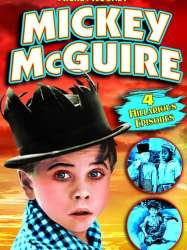
Mickey's Big Game Hunt (1928)
, 20minutesDirected by Albert Herman
Origin USA
Genres Comedy
Actors Mickey Rooney, Billy Barty, Jimmy Robinson, Kendall McComas, Marvin Stephens
Mickey and the Scorpions decide to go on a big game hunt. The kids go out into the woods, only find themselves up against real wild animals (actually escaped animals from a zoo).
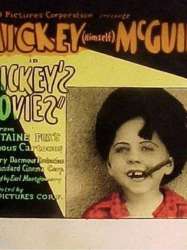
Mickey's Movies (1928)
, 20minutesOrigin USA
Genres Comedy
Actors Mickey Rooney, Jimmy Robinson, Kendall McComas
Excitement arrives in the town of Toonerville, when a movie is being shot on location in front of the Scorpion's clubhouse. After kicking the film crew off of the property, Mickey and his Gang make their own movie with the aid of a 'scenario' that Mickey recently wrote.

Taxi 13 (1928)
, 1h4Directed by Marshall Neilan
Origin USA
Genres Comedy, Crime
Actors Chester Conklin, Ethel Wales, Martha Sleeper, Lee Moran, Hugh Trevor, Louise Fazenda
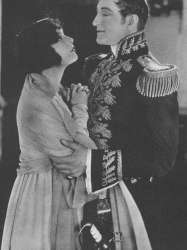
The Beautiful Spy (1928)
Genres Drama, Historical
Actors Francis X. Bushman, Jacqueline Logan, Guido Trento, Henry Kolker, Charles Hill Mailes, Charles K. French
 Connection
Connection
